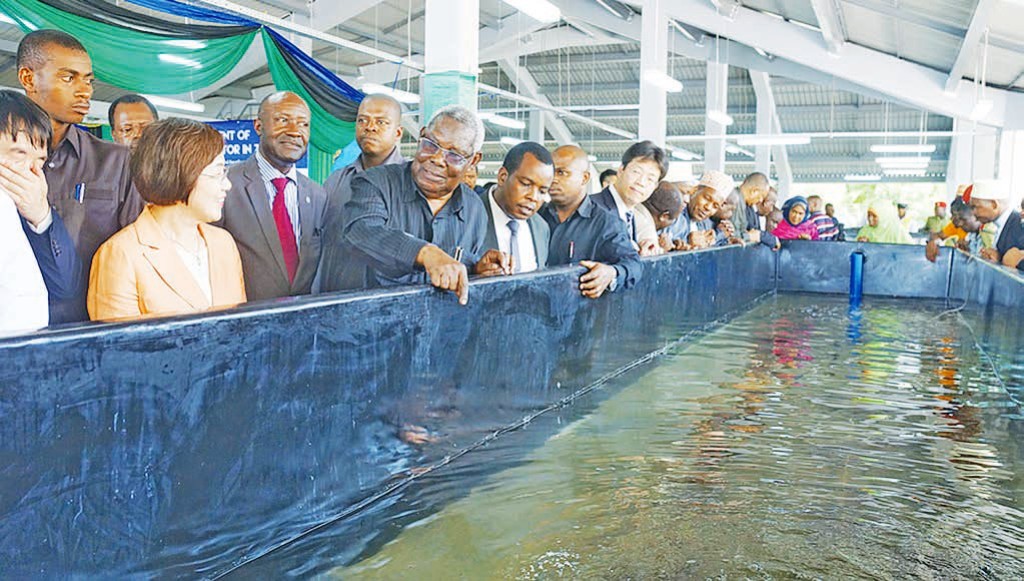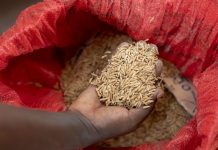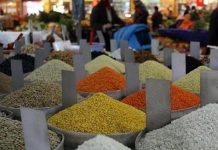ONE needs skills, physical energy and modern equipment, including vessels to fish in deep sea waters. However, not many fishers have the ability.
That being the case, no local fishers carry out their activities in deep seas. Juma Hassan Kombo, who has been fishing for about 35 years, was thinking about retiring from his career because of aging along with deteriorating body energy, and inability to purchase modern fishing gears.
More than thirty thousand fishers are like Mr Kombo, they cannot fish in the deep sea, only in shallow water where experts have repeatedly warned about over fishing and possible decline of fish catch due to destruction of coral reefs, environment degradation and climate change.
Zanzibar government has often encouraged fishing in deep sea where more fish can be found and promises to support the fishers improve their catch by training them, to purchase modern fishing equipment and is also planning to establish ‘fishing boats’ assembling factory here.
The Government also has undertaken special efforts to revamp its ‘Zanzibar Fishing Corporation (ZAFICO) by commissioning the construction of two fishing vessels in Sri Lanka and Maldives.
The vessels will be capable of storing 8 6 tonnes of fish for two weeks when they are in deep sea. Likewise, after the establishment of ZAFICO, immediate steps are being taken to repair the cold storage warehouse situated at Malindi to ensure that there is adequate place for fish preservation, along with preparations to establish fish processing factory.
As the government implements the promises gradually, fishers and youth with interest in fishing have been happy to learn about recent development in fishing industry, the start and promoting fish farming or Aquaculture supported by the development partners.
Kombo is happy that through aquaculture he can continue with fishing, particularly after the opening of a marine hatchery at Beit-el-Raas area, north of the Stone town, where farmers will go for Fingerling (young fish) to grow in ponds.
The initiatives by Zanzibar, in partnership with the Korean International Cooperation Agency (KOICA) and the Food and Agriculture Organisation of the United Nations (FAO) led to the development of a marine hatchery to support ecologically sustainable development of aquaculture in Zanzibar, leading to positive economic and food security outcomes.
According to Mr Said Shaibu, technician at the marine multi-species hatchery, it offers support to aquaculture farmers here with fingerlings mainly milkfish (Mwatiko), Crab (Kaa) and Sea Cucumber (majongoo ya bahari) seed for outgrow farmers and other profitable aqua-farmers.
Visiting the hatchery almost a year since it was officially opened in April last year, the technician said farmers should expect support mainly provision of developing young fish, free of charge, so that they can raise and sale.
“This is a milestone in fishing industry. The hatchery is among the biggest ones in Africa and we hope many fish farmers will benefit,” Mr Shaibu said adding that running the hatchery may be expensive for example it requires constants supply of electricity and the bill is approximately 2m/= per month.
The visit to the newly opened marine hatchery was enabled by the Tanzania Commission for Science and Technology (COSTECH) as a study tour for journalists to learn about advantages and benefits of researches undertaken in the country.
Currently fishing only contributes about 7.2 percent to the GDP, but the second V ice- President Ambassador Seif Ali is optimistic hatchery will help increase production and also would help in poverty reduction.
He said that experience from some countries like Japan shows that hatchery has helped to increase fish production, urging Zanzibar fisher to grab opportunity provided by the new technology to boost production along with doubling their income.
There are about 144 groups of fish farmers formed within the past decade with the aim to increase fish through fish ponds/ farms as additional methods of fish production to the traditional way.
However, the farmers were complaining about lack of fingerlings. “Having a hatchery should drive people, particularly the youth to engage in fish farming as one of the reliable jobs because 50 percent of the seafood now is produced through farming while conserving the environment,” said Iddi as he thanked KOICA and FAO for the support.
Ms Maryam Abduall Juma, Permanent Secretary (PS) – Ministry of Agriculture, Natural Resources, Livestock and fishing says the hatchery is estimated to provide job opportunities to 36,312 including 39 people who were trained in China on fish farming.
he marine hatchery at the Beit-el-Raas area here has a big capacity, but it started by hatching ten thousand fish mainly ‘mwatiko,’ 75 Crab, and 55 sea cucumber and the number is expected to be increased so that more fish farmers can get the fingerlings.
The hatchery is capable of producing ten million newlyhatched fishes per year and its believed that the existence of fish hatchery here will spark people’s interest in engaging themselves in fish keeping; as shortage of newly- hatched fishes and fingerlings will no longer be a problem.
Ms Juma says the hatchery constructed by a local company- ‘Salem Construction Limited’ include a lab, administration office, water pumping system and training centre for fish farmer on how best to farm fish.
During the opening of the marine hatchery, the KOICA President, Ms Mikyung Lee commended Zanzibar for having the marine hatchery which aims at sustainable fish production in meeting increasing food demand and one of the measures to reduce poverty.
She said, “We hope this project will have a significant impact in boosting the economic growth and food security of Zanzibar. It is also among projects that respond to the global call to achieve the 2030 Sustainable Development Goals (SDGs).”
FAO’s country director for fisheries and agriculture policy, Mr Emmanuel Barange said “We are committed to continue supporting farming and fishing projects, at least by capacity building or trainings for better production.”
He said Zanzibar and Tanzanians in totality should be proud of having the marine hatchery, the most modern in Africa and the tenth in the World, arguing that fish production will increase if the opportunity is well utilized.
Barange said that the project was designed in a way that guarantees sustainability stressing that the small-scale farmers, entrepreneurs and traders, remain important industry stakeholders due to the fundamental role they play in profitable production, development of the value-chains and in implementing measures to ensure access to markets.
President Ali Mohamed Shein has also recently talked about marine hatchery as the government’s move to Blue Economy (BE).
According to the World Bank, the blue economy is the “sustainable use of ocean resources for economic growth, improved livelihoods and jobs while preserving the health of ocean ecosystem.”
According to Indian Ocean Rim Association (IORA) of which Zanzibar/Tanzania is a member, fisheries, which is a vital oceanic resource forms the core of the Blue Economy, as one of the main resources which provide food to millions of people and greatly contribute to the livelihoods of coastal communities.
It says Aquaculture, which offers huge potential for the provision of food and livelihoods, will under the Blue Economy incorporate the value of the natural capital in its development, respecting ecological parameters throughout the cycle of production, creating sustainable, decent employment and offer high value commodities for export.
In meeting the increasing public demand in seafood products, natural fisheries resources were highly being over-exploited and threatened.
Therefore, the urgent need to find a balance between population need and environmental health has provided impetus to the promotion of sustainable fishing and aquaculture.
Well-managed fisheries can deliver billions more in value and millions of tonnes more fish each year, while aquaculture has the potential for continued strong growth to supply the food requirements of a growing world.







